Commentary
Communists in closets, queering progressive history
Biologist E.O. Wilson writing in On Human Nature: “Homosexuals may be the rare carriers of the altruistic impulse in the human species”
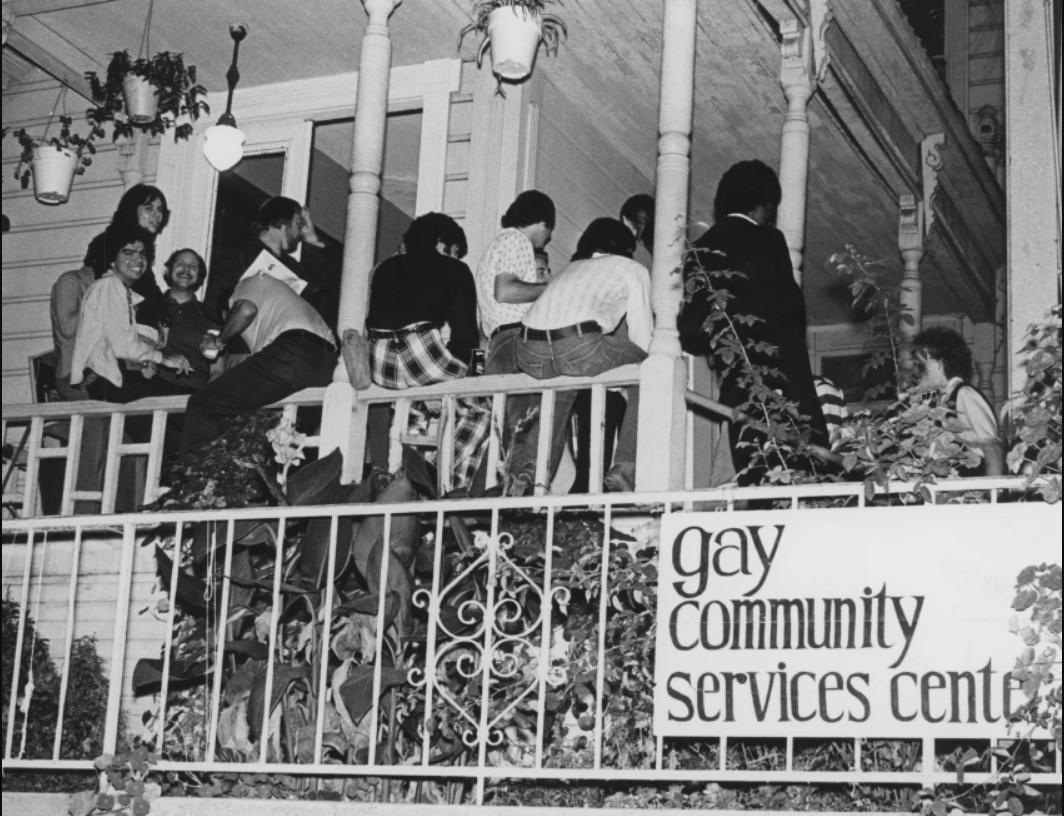
By Don Kilhefner | WEST HOLLYWOOD – Growing-up as a poor, working-class kid in very conservative Lancaster County, Pennsylvania—Amish-Mennonite-Central—my budding intelligence always seemed to naturally lean Left on the political compass.
In the late 1950s at Millersville University, a branch of the Pennsylvania state university system, Maynard Keynes, a gay man, Frederick Engels, Karl Marx, as well as Adam Smith, entered my consciousness and political vocabulary.
In my early 20’s, I began correspondence with Gus Hall (1910-2000), head of the Communist Party USA (CPUSA), and Norman Thomas (1884-1968), head of the American Socialist movement and six-times presidential candidate. Their short notes back to me were supportive and encouraging. I was in love with their ideas.
It was a brief marriage. It ended in deep disappointment but not cynicism. At that time, I discovered the words “bourgeois decadence” which Marxist/Communist ideology said resulted in homos like me who frequently had lust in my heart (Jimmy Carter, yes!) for men.
Communist ideology advocated that it would be best if gay men were not around. [The persecution by hetero supremacists then was primarily directed against gay men.] Those pesty gay flies required a hetero supremacy fly swatter. In 1934, the Soviet writer Max Gorky declared in Pravda, “Destroy homosexuals—Fascism will disappear.”
It’s also worth noting that the Encyclopedia of Homosexuality (Volume 2) states, “There can be little doubt that, as far as they thought of the matter at all, Marx and Engels were homophobic….”
All kinds of stupid trash-talk and pseudo-intellectual bullshit occurs in hetero dominant cultures regarding gay people—dehumanization always, genocide usually. When it comes to gay and lesbian people, there is very little difference between right-wing or left-wing dictatorships, as well as democracies—all suffused by hetero superiority.
I kept evolving as a self-accepting gay man. Soon, I discovered Walt Whitman and Allen Ginsberg, beginning a life-long love affair with all things gay and, to tell the truth, all things “decadent.”
I appreciate still very much the message in Marx’s Das Kapital that helped me understand industrial capitalism as a system of oppression and how that system created much suffering for working poor people, like my parents. The book’s insights are still relevant today with our old-wine-in-new-bottles techno-surveillance, billionaire, capitalist economic structures of the small, large, and Big Gulp-sizes.
During much of the 20th century, Marxism was an important, but organizationally-shadowy, intellectual presence on U.S. college campuses and in U.S. culture. In 1938, the CPUSA purged suspected gay and lesbian members. It was not until 1991 that the CPUSA voted to admit for the very first time openly gay and lesbian members, 23 years after the 1969 Stonewall Rebellion and the truly-revolutionary Gay Liberation movement had already quickly transformed the lives of American homos. Only in 2005 did CPUSA unequivocally support LGBT rights—2005!

In the 1920s and 1930s, many times the best, brightest and most creative of that generation, many of them gay and lesbian, were drawn to the idealistic possibilities on the new, Marxist horizon that promised a more equitable society and believed that the CPUSA would help to facilitate that revolution. Stalin’s purges and the Soviet invasions of Hungary (1956) and Czechoslovakia (1968) ended in disillusionment by most CPUSA members and supporters.
By the end of the 20th century, Gus Hall bellowed against glasnost, perestroika and homos like an old, bull mastodon sinking into the La Brea tar pits. The CPUSA bifurcated into a reactionary Party led by Hall which soon became largely irrelevant and fellow travelers who left the Party, becoming largely absorbed into the eruptions of democratic socialism in the early 21st century.
Bettina Aptheker and Communists In Closets
Recently, Bettina Aptheker has written a much needed, growing edge historical account about gay and lesbian people and their involvement within the Old Left, with particular emphasis on the CPUSA and its numerous front groups. The history of queers and the New Left remains to be written. Aptheker’s book is titled Communists In Closets: Queering the History 1930s-1990s (Routledge).
She came out publicly as a Communist in 1962 through the Free Speech movement in Berkeley and as a lesbian in 1979, 10 years after Stonewall. Evidently, being publicly Red was easier than being Lavender.
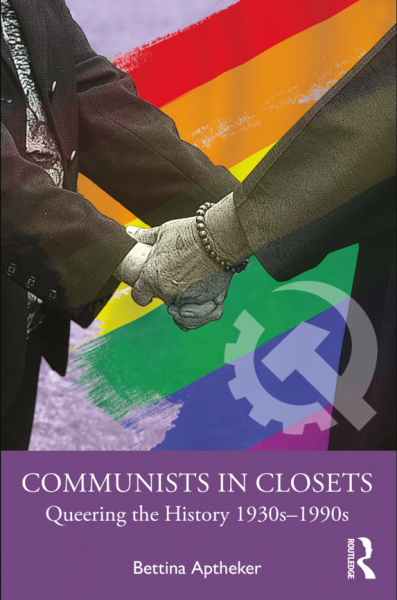
Ms. Aptheker is an astute academic historian in her own right, and, as is always routinely mentioned, like now, is also the daughter of Herbert Aptheker (1915-2003), a distinguished Marxist historian and author of numerous books on African-American history and historiography, particularly his outstanding American Negro Slave Revolts in 1943. I first encountered his voluminous research on Black history while a history graduate student at Howard University in the mid-1960s and came across him again in the late 1960s while at UCLA through my anti-Vietnam War movement participation. I lionized him.
In 2003, Ms. Aptheker gained my deep esteem and compassion when in her Intimate Politics: How I Grew Up Red, Fought for Free Speech and Became a Feminist Rebel she courageously revealed openly that in her youth she had been sexually molested often by her father.
As soon as Amazon Prime delivered the book, I immediately began reading Communists In Closets, devouring it in two sittings. With growing excitement, I soaked up the new gay and lesbian historical information. During a second reading a few weeks later, my gay-centered critical intelligence kicked in and questions began to emerge. I’ll share both experiences.
First Reading
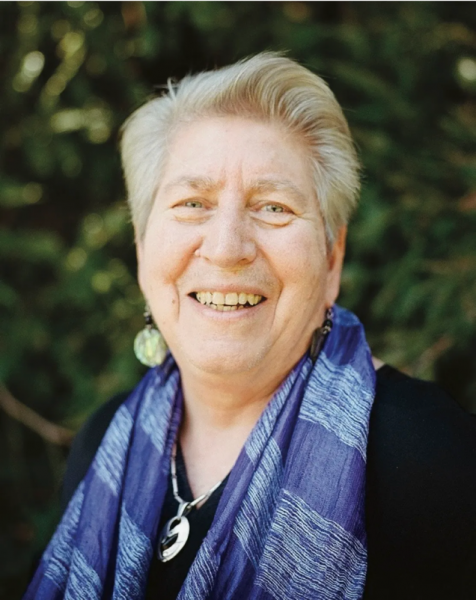
It was refreshing and delightful reading about 20th century gay and lesbian political and cultural activists that I had never ever heard about previously and my admiration for these ancestors grew the more I read. For a change, it was not just about the privileged ones and celebrities, the glitterati and literati. It’s mostly about ordinary gay and lesbian people with strong social consciences that guided their embodied political and social justice work from early to late in the 20th century in the United States and internationally. Ms. Aptheker also makes them whole people by also including snippets about their love and lust lives.
The CPUSA was founded in 1919 as an offshoot of the early militant labor union movement. Closeted gay and lesbian people joined the nascent Party, as Ms. Aptheker makes clear, even though their proclivities were often apparent if you had eyes to see.
In 1938, in the customary ways of hetero supremacists, the CPUSA leadership kicked out known and suspected gay and lesbian people and forbid their membership as security risks. Through blackmail, it was claimed that homos might reveal the Party’s clandestine machinations and secret membership, the same lame excuse used by the U.S. State Department—as if heteros could not be blackmailed or security risks, only homos.
When the blackmail issue came up in the early Gay Liberation movement, we said, “You can’t blackmail an honest person. Come out.” In the early 1970s, conservative homo opponents of the militant Gay Liberation Front of Los Angeles used “red baiting” as a tool to discredit Morris Kight and me, like in 1953 it destroyed the Mattachine.
Kight was referred to in print as “Moscow Morris” and I was called “Peking Don” and rumors were spread that identified me as a hetero member of the Socialist Workers Party (Trotskyites) sent to take over GLF for the SWP—all balderdash. In those days, the way to destroy any social change movement was to label it “Communist.”
Gay and lesbian people’s contribution, even leadership, to radical, 20th century social change movements, as gay and lesbian people, is often not acknowledged by historians, talked around, or even erased in the Old Left. Like a cultural archeologist, Ms. Aptheker has unearthed layer upon layer of buried, closeted and not-so-closeted queer treasures. After 55 years of making and assiduously studying gay history and political culture, 95% of the names are new even to me, silently ohing and ahing as I read.
In a sacred way, let me call out a few names of these gay and lesbian ancestors: Harry Hay, Lillian Wald, Anna Rochester, Gerald Meyer, Maud Russell, Bertha Capen Reynolds, Marc Blitzstein, David Graham DuBois, Virginia Mercado, Marge Gelders Frantz, Betty Boynton Millard, Bayard Rustin, Elanor Flexner, Lorraine Hansberry, and many, many more—I could go on for pages.
They were involved, many times in leadership positions, sometimes as foot soldiers, in every progressive social change and social justice cause you can think of in the 20th century.
Even though they were forced to hide their true selves, they lived lives of righteous integrity and important social contribution. LGBTQ people, and others, as I keep reminding, you have a history you can be proud of.
As I laid down Communists In Closets, sitting with my eyes closed, thinking and feeling the book, the prophetic sentence by evolutionary biologist E.O. Wilson in his 1978 Pulitzer Prize-winning On Human Nature came floating to mind, “Homosexuals may be the rare carriers of the altruistic impulse in the human species.”
Second Reading
A few weeks after my emotionally-exuberant, first reading of Communists In Closets, I read the book again. The second reading engaged my gay-centered critical intelligence, causing me to have a dialogue with the book, less a conversation with Ms. Aptheker, and more with my pre-1950 gay and lesbian ancestors written about in the book. This is how the dialogue went:
The questions I’m about to put to you collectively are asked with great respect and admiration for the radical social change work of your generations. There is something, however, I don’t understand. You Marxists, CPUSA members prior to 1938 and after, Leftist good trouble- makers, and social change warriors excelled at political analyses of social problems, articulated the sources of oppression for a wide variety of minorities and classes, and organized people from different sectors of society to address these problems.
So, why didn’t you use those same skills and abilities to analyze the sources of gay and lesbian oppression and organize against the discrimination hurled at you? Why didn’t you fight back, even one of you? Why didn’t you organize homos? You knew how.
Why did it take until 1950 for homos in the U.S.—Harry Hay and the other six progressive men who organized the Mattachine—to call us an oppressed minority group with a unique homo culture? [A very short-lived attempt was made by Henry Gerber to organize a homo group in the mid-1920s in Chicago, but it was quickly crushed by the police]
I don’t get it, and I’m a veteran gay activist playing on your team. Is there something about the depth and depravity of hetero supremacy in the first half of the 20th century in the U.S. that needs to be brought into clearer historical focus? Or, was it something else?
Yes, I totally understand your point of view. I agree that there was systemic and institutionalized hetero supremacy throughout the Western world that shamed and devalued you. Yes, you could lose your families and jobs. Yes, lobotomies were done on you involuntarily with ice picks. Yes, yes, every religion called you sinful, inferior, and disgusting, and laws at every political level made it possible to arrest you for being openly you. Yes, the psychologists poisoned your minds. I understand why suicide was a rational way out for some. Yes, dead homo bodies were found in ditches along country roads and no one cared.
Why did no one fight back and tell Gus Hall and the other hetero chauvinists to shove it, so to speak? This is an extremely friendly question.
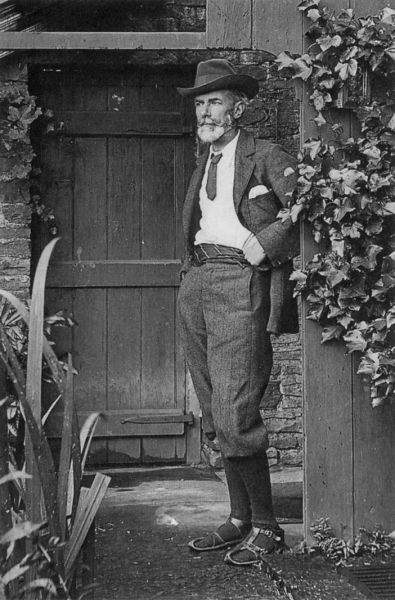
Did you not know about Edward Carpenter (1844-1929), an openly gay man in England who lectured publicly throughout that country about socialism, women’s equality, and the intermediate type (his term for homos instead of ‘sodomites’) and wrote books on these subjects?
Did you not know about Karl Heinrich Ulrichs (1825-1895), an openly gay man in Germany, a lawyer, who assertively and publicly fought back against hetero supremacy there?
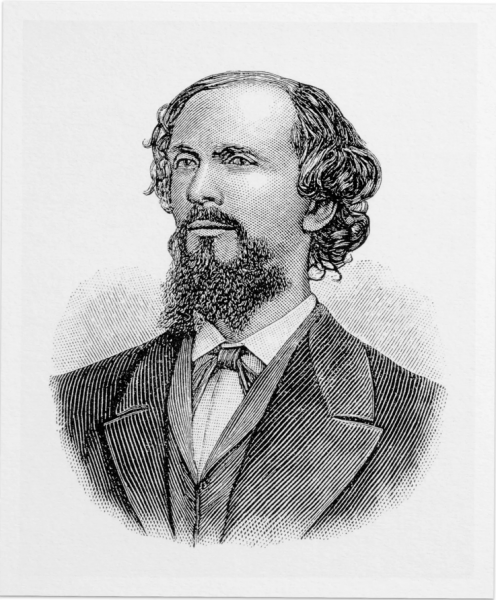
Did you not know about the new, so-called scientific field of sexology that emerged at the end of the 19th century in Europe which first coined the terms ‘heterosexual’ (good, normal) and ‘homosexual’ (bad, abnormal). In Germany, a very visible and published Magnus Hirschfeld (1868-1935) and his Institute in Berlin contributed to a pro-homo, law reform political agenda.
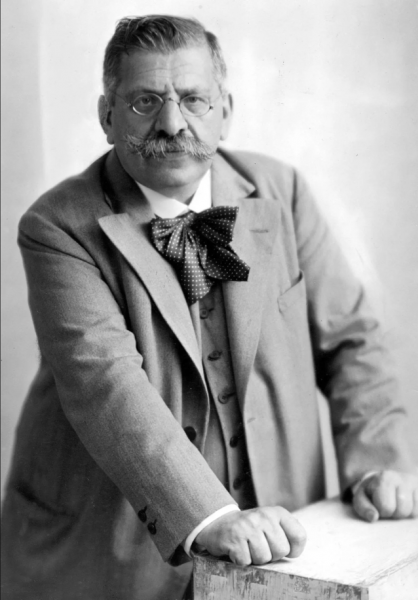
Did you not know about the relatively open gay, lesbian, and trans life and culture during the Weimar Republic (1918-1933) in Germany with homo organizations, publications and a proto gay community, destroyed by the Nazis, and advances in several other European countries. Both the Communist Party and Social Democrats in Germany during the Weimar period supported the decriminalization of same-sex, consensual relationships.
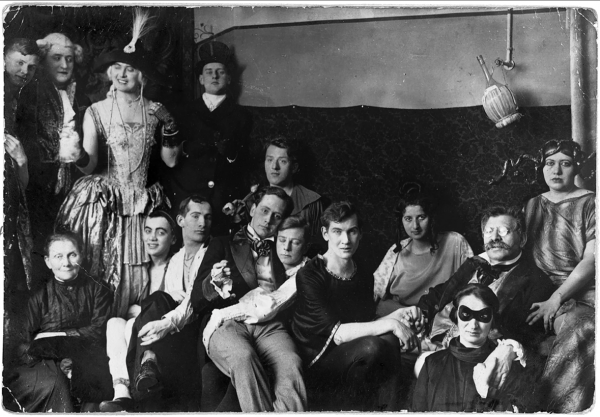
This baffles me. Why on the European side of the Atlantic was there gay and lesbian action and forward movement and on the American side seemingly silence on the homo political front? There was much intellectual cross-pollination between European and U.S. peoples and cultures during the first half of the 20th century, particularly by Leftists. Did you not know about those homos inching forward in Europe?
In any case, I want to give each of you a warm hug and listen to your tales of personal survival and resistance.
Perhaps, I might be misreading the homo information flow between Europe and North America before 1950. Here’s a valid doctoral dissertation topic for a bright LGBTQ history graduate student.
Communists In Closets is an important book and tells a significant story for both LGBTQ people and society at large.
And, after all this is said and done, I bow slowly and deeply, with much gratitude and respect, in the direction of Bettina Aptheker.
*************************************************************************************
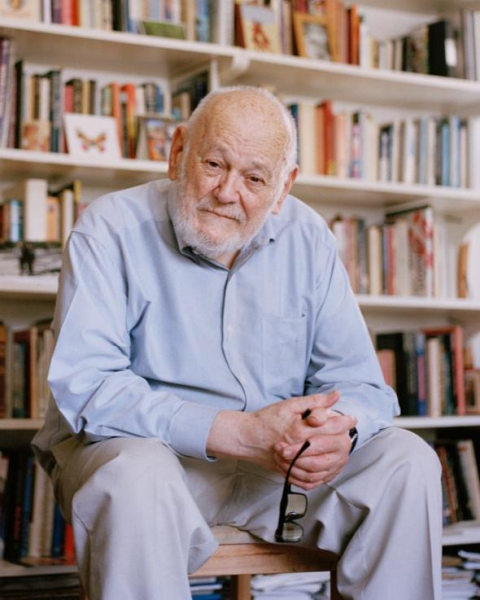
Don Kilhefner, Ph.D., is a pioneer Gay Liberationist, co-founder (with Morris Kight) of the LA LGBT Center and Van Ness Recovery House, and co-founder (with Harry Hay) of the international Radical Faeries movement.
Commentary
Breaking the mental health mold with Ketamine: insights from creator of Better U
How this brand is making high-impact mental health care available to the people who need it most

Ketamine therapy was once on the fringe, but now makes up a fast-growing field in the world of Mental Health. Derek Du Chesne of Better U, a mental health service in West Hollywood, shares how his team attempts to make psychedelic care safer, smarter and more accessible.
Mental health is finally getting the attention it deserves and as our understanding of it deepens, so does the range of tools available to support it. In recent years, psychedelic-assisted treatments like ketamine are gaining serious ground and a growing number of clinicians have turned to these as promising alternatives to more traditional methods. Enter Du Chesne, creator of Better U, with the goal of making ketamine therapy more accessible and personal. In our conversation, Du Chesne shares the mission behind Better U, the challenges faced by underserved communities and how his team is aiming to reshape the mental health landscape one patient at a time.
Can you share what Better U is all about?
I’m the founder and CEO of Better U. We’re a telemedicine-based alternative wellness platform, currently operating in 35 states. We primarily offer ketamine therapy for conditions like depression, anxiety, PTSD and suicidal ideation. We also provide services in sexual health, clinical weight loss and holistic psychiatry.
You’ve had your own experience with psychedelic therapy. Can you talk about how that journey inspired Better U?
Six years ago, I never imagined I’d be doing this. I had used psychedelics recreationally, but ketamine never interested me. I saw it as a horse tranquilizer nothing I’d ever take seriously.
I had been working in alternative health, specifically cannabinoids mainly on the supply chain side across several industries. In 2019, I traveled to about 40 countries for work and we raised around $40 million in capital. That year, my company made $85 million in revenue and was heading into a $1.2 billion acquisition. Personally, I was also about to get married. Within six weeks, both my career and my relationship unraveled. The company let me go just before my equity vested and I later found out my fiancée had been unfaithful while I was on the road.
Everything I had built my identity around collapsed. I spiraled into a deep depression, tried therapy, psychiatry, and antidepressants. None of it helped. Eventually, I became suicidal. A close friend intervened and brought me to a ketamine clinic. I was extremely skeptical, especially since a single session cost $1,600. But about 15 minutes into it, I felt like I could breathe again for the first time in months.
The treatment helped me separate from the constant, negative thought loops. It created space between me and my pain, helping me see that the things that happened didn’t define me. That clarity changed everything. I no longer felt like I had to carry shame or blame for what others had done. It gave me peace.
Shortly after, a friend suggested I get out of my environment. Everything in my home reminded me of the past. I went to The Bahamas for a reset: sun, exercise and healing. That period helped me recalibrate.
Months later, I was invited to Stanford by a friend whose sister leads epidemiology there. At dinner, I met someone involved in psychedelic research. I shared my experience and he invited me to visit their depression clinic and psychedelic research lab. That’s when I realized the transformative potential of these therapies. I sat with hospice patients receiving psychedelic treatments. People from all walks of life have similar, profound responses. It was incredibly moving.
That’s when I started thinking: how do we make this affordable and accessible? My first ketamine session was powerful, but afterward, there was no follow-up, just a “see you next week.” It felt transactional. I wanted to build something more thoughtful, especially for people like those in my small hometown in Wisconsin where mental health care is rare and stigma is high.
Better U was born from that idea.
Better U has facilitated over 230,000 sessions for around 18,000 patients nationwide. A large portion of your clients identify as LGBTQ. Why do you think ketamine therapy resonates so deeply with that community?
The LGBTQ community is incredibly diverse, and so are the challenges its members face, from gender dysphoria and identity struggles to rejection from family, friends, or society. That rejection often comes right at the moment someone begins living as their authentic self. The emotional toll can be devastating and in many cases, the suicide rates, especially among trans individuals, are alarmingly high.
Ketamine therapy creates space. It allows someone to step outside of the emotional chaos, the shame, fear, judgment and look at themselves without that mental noise. When you can separate your identity from the voices in your head or the reactions of others, there’s clarity. You begin to realize, “This pain isn’t about who I am, it’s about others’ inability to accept me.” That shift can be life-saving.
Many of our LGBTQ clients come to us after years of self-medicating with alcohol, drugs, or even unhealthy relationships. Others feel like they’ve hit a wall with traditional talk therapy. As we age, our brains get more set in their patterns. Ketamine disrupts those patterns. It can help people access a deeper level of understanding and healing, especially when other methods have stalled.
What’s powerful is that many patients don’t come in intending to stop drinking or using substances. They come for anxiety, depression, or suicidal thoughts. But after a few sessions, they’ll say, “I realize my drinking is tied to social anxiety,” or “I use because I feel like I have to numb myself to be accepted.” The therapy helps them see that those coping mechanisms aren’t serving them anymore.
We’re based in West Hollywood, so we’re deeply embedded in this community. In cases of suicide attempts, local hospitals like Cedars-Sinai often reach out to us because ketamine has become one of the most effective tools for treating suicidal ideation.
That said, it’s not a cure-all. If someone is abusing ketamine recreationally, we won’t treat them with it. It’s not safe or appropriate. But in a clinical setting, when properly dosed and supported with integration care, we’ve seen almost no cases of addiction. It can be a powerful tool for healing when used with intention.
Trauma-informed care is a term that gets used a lot in mental health these days, but what does it actually mean to you and how do you apply that framework at Better U?
To me, trauma-informed care means creating a system where every person interacting with a patient, from intake to integration, is trained to recognize, respect and respond to trauma. At Better U, we’ve built multiple layers of support to reflect that. While our welcome team handles basic screenings and eligibility, it’s our clinicians, integration therapists and success team who are most deeply trained in trauma-informed practices.
The unfortunate reality is that many ketamine clinics are founded by anesthesiologists—people who understand how to use the drug medically, but have little or no training in mental health. You can see it when you look at their teams: no psychotherapists, no psychiatrists, no trauma-informed staff. That’s dangerous, especially with a treatment that has the potential to surface deeply emotional material.
At Better U, we made sure to embed trauma-informed care into our clinical culture. Our doctors like Dr. Zaa Faul—a dual-board-certified addiction specialist and Army veteran—and Dr. Jamie Brooks, have deep expertise in both mental and physical health. Our success team, which supports patients after their sessions, is mostly made up of licensed therapists and professionals with years of experience in crisis care, psychedelic research and emotional integration.
Trauma-informed care also means learning how to hold space for people in distress. When I was the only person speaking to patients in our early days, I got yelled at, cussed out, blamed, not because patients were “bad” people, but because they were in pain. Maybe they hadn’t slept, or fasted before a session and were feeling raw. Maybe they were grieving or reliving trauma. You have to meet people where they are, understand that it’s not personal, and guide them toward healing without judgment. That’s where nonviolent communication becomes essential too. It’s a big part of how we train our staff.
Ultimately, it’s not just about delivering a treatment. It’s about helping people feel seen and safe enough to transform. And when you do that well, you get to witness incredible things, like someone processing deep grief or suicidal thoughts in a matter of weeks, instead of years. That’s the beauty of this work.
Let’s say I’m a potential patient who’s hesitant of undergoing ketamine therapy. What would you say to ease my mind?
Sure. First, I’d ask, have you ever had any experience with psychedelics?
[Then, I’d explain] most people who come to Better U, probably over 95%, have never had any experience with psychedelics. So it’s completely normal to feel anxious going into a first session and entering an altered state of consciousness. Especially if it’s unfamiliar.
I want to be transparent—our program isn’t a microdose. It’s a full, immersive experience.
That said, let me walk you through what the process actually looks like so you know what to expect.
After a consultation with a doctor to make sure this is a safe and appropriate treatment for you, you’ll receive a kit in the mail. That includes a blood pressure cuff, a journal, a “brain box,” and other tools to support your experience.
Then, before your first session, you’ll have a mandatory preparation meeting with one of our therapists. That’s where you can ask any remaining questions or talk through any lingering anxiety. You can even request a group session if you want to hear what others are feeling.
We also start very slowly. Your first dose is intentionally low — it won’t feel like a full psychedelic trip. It’ll feel more like a medication-enhanced meditation. It’s really just a way to help you dip your toe in and see how your body and mind respond before we increase the dose.
Is it safe?
Yes, incredibly safe, when done properly. Our protocols are built to prioritize your safety at every step. We’ve worked with thousands of patients and have seen incredibly low rates of any negative outcomes, especially when compared to traditional psychiatric medications.
And to be direct, while this work can be uncomfortable at times, it’s not always sunshine and rainbows, it’s also where the breakthroughs happen. This treatment acts like a mirror, helping you see what’s going on inside, but from a different, often clearer, perspective. And sometimes just that shift in perspective can change everything, from how you relate to yourself to how you engage with the world around you.
Where do you see Better U going in the near future, and how do you see it shaping the future of mental health?
Right now, one of our primary focuses is on insurance credentialing for all of our providers. Most of our patients come to us already on medications – antidepressants, benzodiazepines, Adderall, and so on—and as things currently stand, we can’t legally give them a plan to taper off or discontinue those medications.
So, let’s say someone goes through eight ketamine sessions with us and feels amazing, but they’re still on Xanax or an SSRI—we can’t formally help them get off of it. I think a huge issue in the U.S. right now is over-diagnosis and over-prescription. So by getting our doctors credentialed to accept insurance, including Medicare and Medicaid, we can create six month plans.
For example, to help patients reduce or discontinue medications that may no longer be serving them. At the very least, we want to help people lower their dosages to give themselves a fighting chance. Because right now, mental health care in this country is incredibly broken.
We’re also implementing AI. We’re about to launch a 24/7 companion app that provides continuous support. I think one of the reasons Alcoholics Anonymous has been so successful is the sponsor model. We’re building something similar: an AI “sponsor” or companion that can provide round-the-clock mental health and physical wellness support. Think of it as an AI therapist that works alongside the human element.
Looking further ahead, we’re also preparing for the future of MDMA-assisted therapy, psilocybin and other emerging treatments. There’s a lot coming and we’re positioning Better U to be at the forefront of it all.
Commentary
Trump’s approach to Ukraine poses major risks to LGBTQ community
USAID cuts threaten shelters, emergency housing, HIV counseling
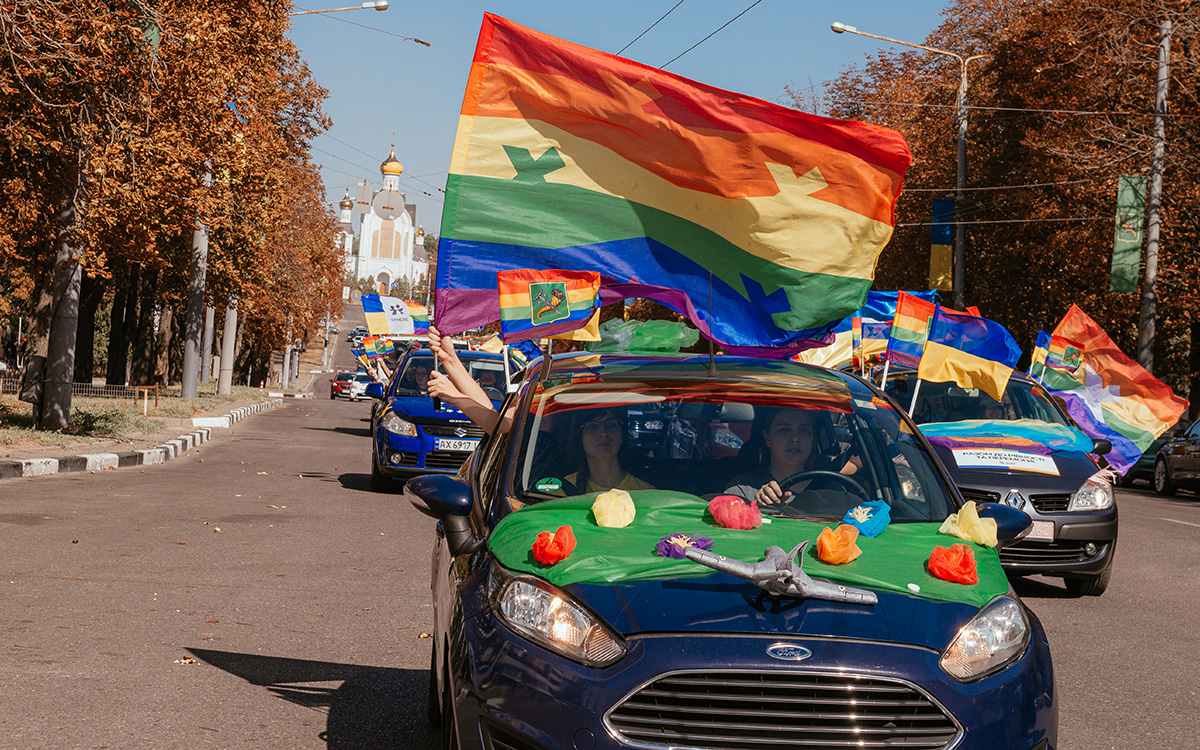
Feb. 23 marks three years since Russia began its full-scale attack on my home country, Ukraine. I haven’t been in Ukraine for more than 10 years, and I spent almost all those years in LGBTQ activism.
I was barely an adult when my family left my hometown, Donetsk, after the declaration of the so-called Donetsk People’s Republic by Russian puppet separatists in 2014.
So many things have changed since then—my school friend was barely able to escape the Mariupol bombings together with two little children. Small cities in the Donetsk region that were barely known to outsiders and were places of my father’s business trips turned into battlefields frequently mentioned in international news. And all my queer acquaintances except for one left Ukraine.
This revealed how the world has shifted into globalization and how LGBTQ rights are used as bargaining chips in political debates, and now the fate of LGBTQ Ukrainians is partly dependent on the U.S.
Because Russian officials were using LGBTQ people as a symbol of everything “immoral” and “Western,” they used LGBTQ people in their war propaganda both against the U.S. and against Ukraine. For example, the leader of the state-supported Russian Orthodox Church, Patriarch Kirill of Moscow, stated in 2022 that the war in Ukraine happened because “people in Donetsk do not want Gay Prides” as a justification for the war, and that the gay Prides are the ultimate test that the Americans and the West are using to find out whether Ukrainians are ready to abandon “Russian traditional values.”
But when I asked a transgender person, L., who was living in Donetsk between 2014 and 2022, they explained that they do not face transphobic challenges that many queer people face in Russia, and the younger generation in Donetsk was pretty much LGBTQ friendly. Even Russian puppet forces didn’t care much about LGBTQ people back in those days.
A majority 58% of Ukrainians hold neutral or positive attributes toward their LGBTQ citizens, according to recent polling.
The LGBTQ phobia wasn’t something that the Donetsk people were willing to protect with their lives; it was something that Russians used in their propaganda war to justify the invasion and killing of Ukrainian civilians, including children.
For a long time, Russia labelled LGBTQ organizations as “Western agents” and used anti-American rhetoric in their homophobic propaganda.
But there was actual help that the Ukrainian LGBTQ community received from the U.S., not because of some kind of conspiracy, but because of humanitarian reasons, because Russian state propaganda and the Soviet anti-LGBTQ legacy made it hard for LGBTQ Ukrainians to find financial support for community activism.
On the anniversary of the war, I spoke with Igor, a Ukrainian lawyer born in Donetsk, political analyst, and expert on the American-Ukrainian relationship, currently based in Vienna, about how MAGA and the current American political situation influence LGBTQ people in war-torn Ukraine.
“U.S. support, particularly through USAID and other grant programs, has been essential to sustaining services for LGBTQ individuals in Ukraine” Ihor explained. “Without it, many of these services—like specialized shelters, emergency housing, HIV counseling, and psychological support—would disappear. For instance, shelters in cities like Dnipro and Chernivtsi that offer safe places for LGBTQ people escaping war zones exist largely thanks to international donor funding.
USAID has backed public outreach and education initiatives aimed at fostering open dialogue on LGBTQ issues, which in turn helps combat anti-LGBTQ propaganda. If USAID’s programs were dismantled, we would see an immediate and severe impact: safe spaces could close, mental health support could end, and marginalized groups would be left even more vulnerable. Essentially, the destruction of this aid framework would roll back critical progress and expose the LGBTQ community to greater risks with fewer avenues for help.
To compensate for these losses, pro-LGBTQ NGOs would need to seek alternative funding sources from private donors—such as the Open Society Foundations—or EU-based donors. However, it remains uncertain whether those sources can fully replace the scale and consistency of current USAID-backed programs. Essentially, the destruction of this aid framework would roll back critical progress and expose the LGBTQ community to greater risks with fewer avenues for help.”
At the same time, LGBTQ people in Ukraine are now facing much more grave danger because of current American politics.
President Donald Trump told reporters that it is unlikely that Ukraine would return to its pre-2014 borders, hinting that Ukraine needs to sacrifice the Crimea and Donbas regions—including my hometown, Donetsk. This plan was also promoted by the American delegation at the Munich Security Conference on Feb. 14-16.
Meanwhile, situations with LGBTQ rights in Donetsk worsened. For example, my attempt to find open LGBTQ people in Russian-controlled Donetsk for one of my articles ended with a comment from my bisexual non-binary friend Roman, who told me that LGBTQ people in Donetsk are now avoiding getting in contact with outsiders because they are scared of “fake dates,” when thugs or occupational security forces pretend to be LGBTQ-friendly journalists, physiologists, or potential partners to lure a queer person into a trap. LGBTQ people in Donetsk couldn’t speak openly about their sexual orientation and gender identity.
“In occupied areas like Kherson and Crimea, Russian authorities have specifically targeted LGBTQ+ individuals,” explained Ihor, and a Trump deal could make everything even worse, making it permanent. “The MAGA approach to Russia-Ukraine relations under Trump poses significant risks to Ukraine’s LGBTQ community. If MAGA policies lead to territorial concessions or normalization of Russian control over parts of Ukraine, LGBTQ individuals in those areas would face severe repression under Russian law. Russia’s “gay propaganda” laws criminalize public expressions of LGBTQ identity and advocacy. In previously occupied regions like Crimea and Donbas, there have been documented cases of violence, arrests, and forced disappearances targeting LGBTQ individuals under Russian rule”
Indeed, it’s true. For example, the Russian-occupied Chechnya, an official Russian administration government ruled by Ramzan Kadyrov, is hunting LGBTQ people as part of a mass-terror campaign.
Chechnya has always been a quite conservative region compared to Western Europe; sexuality and gender identity wasn’t something that was widely discussed in independent Chechnya after the Soviet Union collapsed, before Russia attacked the self-proclaimed Chechen Republic of Ichkeria in 1994. It was a private and family matter, but after 400 years of Chechen anti-colonial fighting, Russians decided to break resistance by destroying the whole idea of a private life. Only after Russia got Chechnya under its control, a mass-terror campaign against LGBTQ people began, and sometimes even non-LGBTQ people were framed as “gay,” tortured, and killed.
The Russian administration in Chechnya was actively hunting dissidents and even their relatives, or just accidental young men who could be framed as terrorist supporters, separatists or spies for better “crime detection” statistics or to be sent to the war in Ukraine as a “Russian” cannon fodder.
The same could happen not just with LGBTQ Ukrainians, but with any open-minded and independently thinking Ukrainians in Donbas and Crimea if Ukraine is forced by the United States to sacrifice territories.
It is possible that it’s up to Americans now to stop their government and to help Ukrainian LGBTQ people save themselves from persecution and extermination.
Commentary
Around the world, campaigns for marriage change hearts and minds
Reducing homophobia and leading to greater acceptance
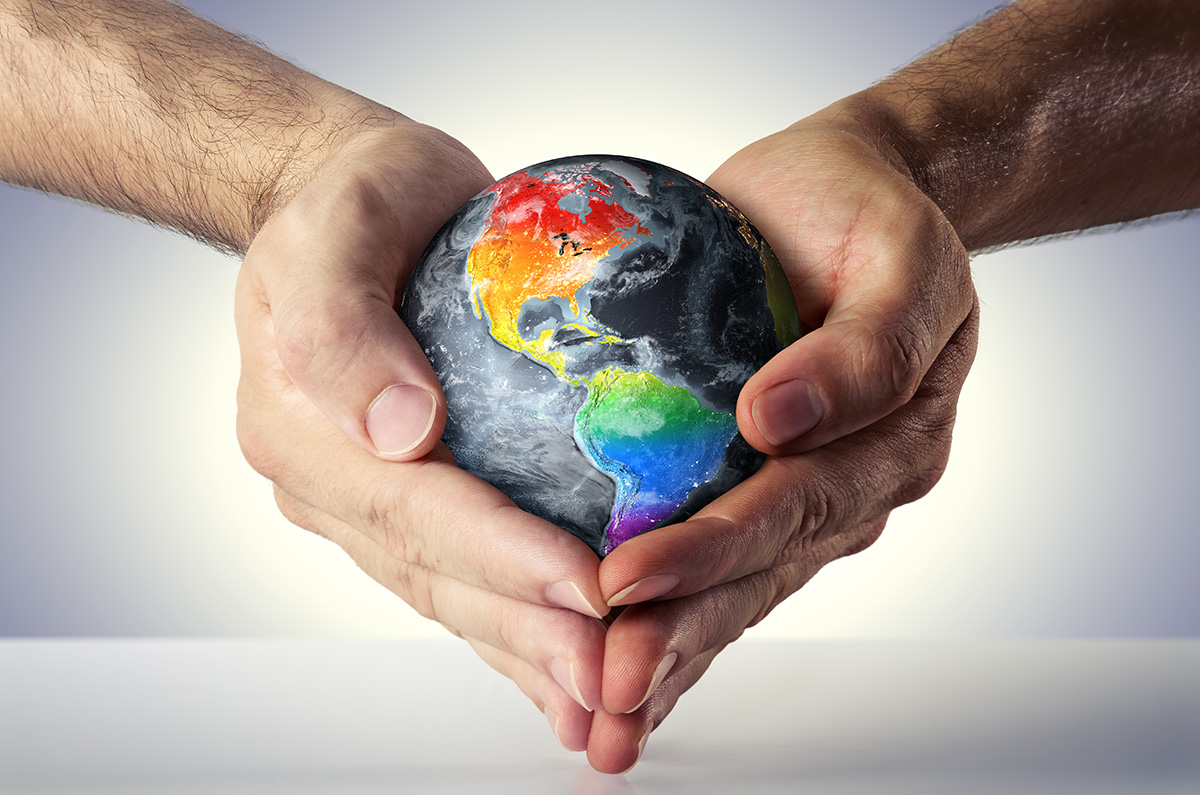
Right now, there are active campaigns to secure the freedom to marry for same-sex couples in dozens of countries around the world – spanning every continent and a wide variety of political contexts. While each of these campaigns is rooted in unique cultural and political dynamics, they have in common the potential to harness the power of marriage as both a goal and a strategy – leveraging the marriage conversation to change hearts and minds about LGBTQ people. Public campaigns for the freedom to marry are a unique opportunity to demonstrate that LGBTQ people are part of families and have the same need for family recognition as everyone else – helping to bring the needs and rights of LGBTQ people into a more familiar context for the broader public.
Not only does changing public attitudes toward LGBTQ people and their families have immediate, tangible impacts for the community, marriage campaigns have proven to yield an array of long-term benefits for LGBTQ civil society and democratic participation – including increasing overall support for LGBTQ causes, strengthening civic organizations, testing the implementation of new strategies to engage decision makers, training new generations of LGBTQ leaders, and instilling belief in activism, the rule of law, and effecting democratic change.
By familiarizing the public with LGBTQ couples and families and lifting the voices of allies, campaigns for the freedom to marry reduce homophobia and transphobia, leading to greater acceptance. The public conversation about the freedom to marry is uniquely centered on the resonant values of love and family, as well as freedom and dignity, helping non-gay people better understand gay people as individuals with loving relationships and families, just like everyone else. Also, unlike other policy changes, the legalization of marriage for same-sex couples is typically accompanied by strong media attention that magnifies the campaign’s potential to shift public attitudes. Even after securing the freedom to marry, polling data shows that public support for LGBTQ people continues to accelerate, creating a more inclusive society and enabling political progress on several other fronts, especially those most important to LGBTQ people.
For example, after Costa Rica in May 2020 became the first Central American country to affirm the freedom to marry for same-sex couples, a poll conducted by international research firm Borge & Asociados found an 18% increase in support for civil marriage for same-sex couples, as well as an increase in support for LGBTQ people more broadly. Nearly 40% of poll respondents reported personally developing a more positive opinion of gay and lesbian people in the previous 12 months and support for adoption and transgender nondiscrimination grew strongly after securing the freedom to marry. Costa Rica went on to enhance hate crimes and second parent adoption laws shortly after the marriage victory.
After Taiwan in 2019 became the first government in Asia to end the exclusion of same-sex couples from marriage, support grew significantly. According to government polling, only 37.4 percent of country residents had previously reported that they believed same-sex couples should be able to marry. However, by May 2023, four years after the marriage victory, the same agency reported that support for marriage had increased to strong majority support (62.6%), an increase of 25.2 percentage points. By 2024, support had climbed an additional 6.5 percentage points to reach an all-time high of 69.1%.
Even in countries that have not yet achieved victory, marriage campaigns are making an impact. In Romania, advocacy organization Asociatia ACCEPT launched a public education television ad in late 2023 that featured parents and their LGBTQ children. Months later, polling demonstrated a 26% swing in support for legally protecting same-sex couples, with a growth of 13% while opposition to protections decreased by 13% compared to 2021. Parents – the target audience of Accept’s paid media campaign – showed significant increases in support, with 55% now saying that if their child were gay they would like the law to allow them marry like anyone else, an 11 point increase. Demonstrating impacts beyond the issue of relationship recognition, the overall visibility of LGBTQ people in Romanian society has increased, with the number of people who know or interact with an LGBTQ person, from 19% in 2021 to 29% in 2024 as a result of a large-scale public education campaign centering LGBTQ people, their families, and marriage.
Similarly, Panama’s 2023 polling showed a 15.3% increase in support for protections for same-sex couples after two years of their “Sí Acepto” marriage campaign. Support for legal protections among Catholic Panamanians rose to 74.5% and, when asked about specific protections, such as visiting their partner in the hospital or making legal decisions together, Catholic Panamanians supported gay and lesbian couples at 84.3%. While the goal of achieving marriage may be a longer journey in countries like Romania and Panama, campaigns for the freedom to marry can still drive significant achievements in public opinion, paving the way for eventual victories.
Research shows similar gains in other countries where marriage campaigns are active. For instance, behind the efforts of Marriage for All Japan, support for marriage in Japan is now at an all-time high of 72%, rising 7% in two years. The Czech Republic also reached 72% support for marriage in 2023, months before the Jsme Fér campaign won the passage of civil partnership, representing an increase of nearly 25 points in four years of active campaigning. Pew research showed 60% support for marriage in Thailand in 2023, one year before the Thai legislature passed marriage legislation with a wide bipartisan majority.
Experience gained from working on marriage campaigns trains campaign leaders to achieve advancements on other issues. Once marriage was secured, Taiwan’s Marriage Equality Coalition, the campaign organization, was re-formed as the Taiwan Equality Campaign. Using strategies implemented to win marriage, TEC led successful advocacy efforts in 2023 to allow same-sex couples to adopt children to whom they are not biologically related. The large-scale campaign for the freedom to marry strengthened Taiwanese civil society, enabling sustainable, ongoing progress and paving the way for future victories. Government leaders now cite marriage for same-sex couples as a key indicator of Taiwan’s democratic society.
Achieving victory in a change campaign invites civil society organizations to empower leaders and supporters to engage in the democratic process, hold elected leaders accountable, and build the political power they need to make change. Marriage campaigns have encouraged leaders to learn and deploy key (and for some countries, new) tactics such as engaging business or faith voices, monitoring and publicizing elected officials’ stands and evolution, and promoting voter engagement. Freedom to Marry Global has worked with advocates to share best practices from around the globe and support local leaders as they test and implement these strategies in ways that suit the local context. This type of coordination and skill-sharing among LGBTQ groups within and across regions is exactly what our LGBTQ movement needs more of to succeed and not reinvent the wheel campaign by campaign.
Additionally, each campaign victory sends a positive message of momentum to neighboring countries. As the first-of-its-kind public education campaign in Latin America, Costa Rica’s Sí Acepto served as a model for the region. Leaders of Sí Acepto collaborated to export the materials and successes to other Latin American countries working to implement the Inter-American Court of Human Rights Advisory Opinion (OC-24). As a result, the impact of the Sí Acepto campaign is felt far beyond the borders of Costa Rica with similarly styled campaigns now active in Guatemala, Panama, Bolivia, and Peru. Progress is powerful and radiates in powerful ways beyond national borders.
While the freedom to marry and the critical protections and fundamental freedom and dignity that marriage brings to LGBTQ couples and their families are important ends in themselves, the public campaigns to secure marriage deliver much more. Marriage is important not just for the tangible and intangible meanings and protections it entails, but also as a strategy to fundamentally change the perception of LGBTQ people, generate momentum and support for further gains, and empower leaders with the skill and political muscle to continue making progress for their communities and their countries. Campaigning for the freedom to marry and the marriage conversation yield meaningful economic and democratic dividends for everyone. Love wins – and we all win.
Freedom to Marry Global and Council for Global Equality advocate for marriage equality in countries around the world.
Commentary
Biden-Harris must ensure access to HIV prevention drugs
A historic opportunity to help end the disease

The Biden-Harris administration has a historic opportunity to help end HIV. New, cutting-edge drugs that prevent HIV are hitting the market, but insurance companies are trying to twist the rules to deny access to these remarkable therapies.
The White House could stop these abuses and put the country on the right course for decades ahead and prevent hundreds of thousands of new HIV transmissions.
Pre-Exposure Prophylaxis (PrEP) drugs represent one of the strongest tools we have to combat HIV. These highly effective therapies can reduce the risk of contracting HIV by up to 99%. So far, the FDA has approved two once-daily PrEP pills, and in 2021 approved the first long-acting version of PrEP. Other groundbreaking PrEP innovations, such as a biannual dosage form, are in active development.
PrEP is a major reason why new HIV infections dropped 12% from 2018 to 2022. Yet there’s still work to do. Currently, just 36% of people who could benefit from PrEP are using it. Racial and ethnic groups face wide disparities in PrEP uptake. For example, Black individuals constitute 39% of new HIV diagnoses but only 14% of PrEP users. Hispanics make up 31 percent of new HIV diagnoses, but only 18 percent of PrEP users.
A new federal directive, if properly enforced, could help close these gaps. In August 2023, a panel of prevention experts issued an updated recommendation to clinicians, recommending PrEP — including long-acting forms of the drugs — to people who want to prevent HIV acquisition. Under the Affordable Care Act, most newly issued private health plans must cover without patient cost-sharing to comply with this recommendation beginning this month.
Yet many HIV experts and patient advocates have raised concerns that insurers could misinterpret — or downright ignore — the task force’s decision and keep barriers to PrEP in place.
One top concern is that insurance companies could decide to cover only one kind of PrEP, even though the task force’s recommendation isn’t drug-specific — it applies to all versions. For example, a health plan might refuse to cover long-acting PrEP and force patients to take oral pills instead.
Yet long-acting PrEP is a critical option for many patients, such as those who struggle to adhere to once-daily drug regimens, are unhoused, or have confidentiality concerns. One study found that patients taking long-acting PrEP had a 66% reduction in HIV infections compared to those using oral pills. Another analysis calculated that long-acting PrEP could help avert 87% more HIV cases than oral pills, and could save over $4 billion over the course of a decade.
Another concern relates to insurers’ increasing use of “prior authorization,” a practice in which health plans refuse to cover certain drugs unless doctors obtain prior permission. Insurers could also force patients to try a number of therapeutic alternatives before agreeing to cover the medicine they and their doctors agreed upon — this is known as “step therapy.” There’s evidence that “prior authorization” policies may disproportionately impact Black and Hispanic individuals, who are already at higher risk of HIV.
Fortunately, these insurer-imposed barriers aren’t inevitable. The Biden-Harris administration, through the Centers for Medicare & Medicaid Services (CMS), has an opportunity to issue clear, detailed guidance that ensures health plans follow through on the legal requirement to cover PrEP for all eligible patients and at no cost.
CMS’s guidance should clarify that insurance companies are obliged to cover all FDA-approved versions of PrEP, including both daily pills and long-acting injectables. When now Vice President Harris was Sen. Harris, she introduced groundbreaking legislation called the PreP Access and Coverage Act, which would require all insurers to cover all forms of PrEP without cost-sharing and prior authorizations. So we know where she stands on the issue.
A number of states, including New York and California, have already established similar coverage requirements and prohibitions on prior authorization for PrEP.
A similar requirement already exists for contraception. Plans are required “to cover without cost sharing any contraceptive services and FDA-approved, -cleared, or -granted contraceptive products that an individual’s attending provider determined to be medically appropriate.”
CMS just needs to adopt language along these lines for PrEP. Doctors — not insurance companies — should decide which drugs best suit patients’ needs.
Thanks to revolutionary research happening every day, people with a reason to be on PrEP have more options available to them than ever before. Yet insurers are intent on restricting access to these innovative therapies. New federal guidance can help combat this and if properly enforced set us on a path toward ending HIV.
Commentary
The impact of women’s bills of rights on trans employees
A mechanism to spread discriminatory policies
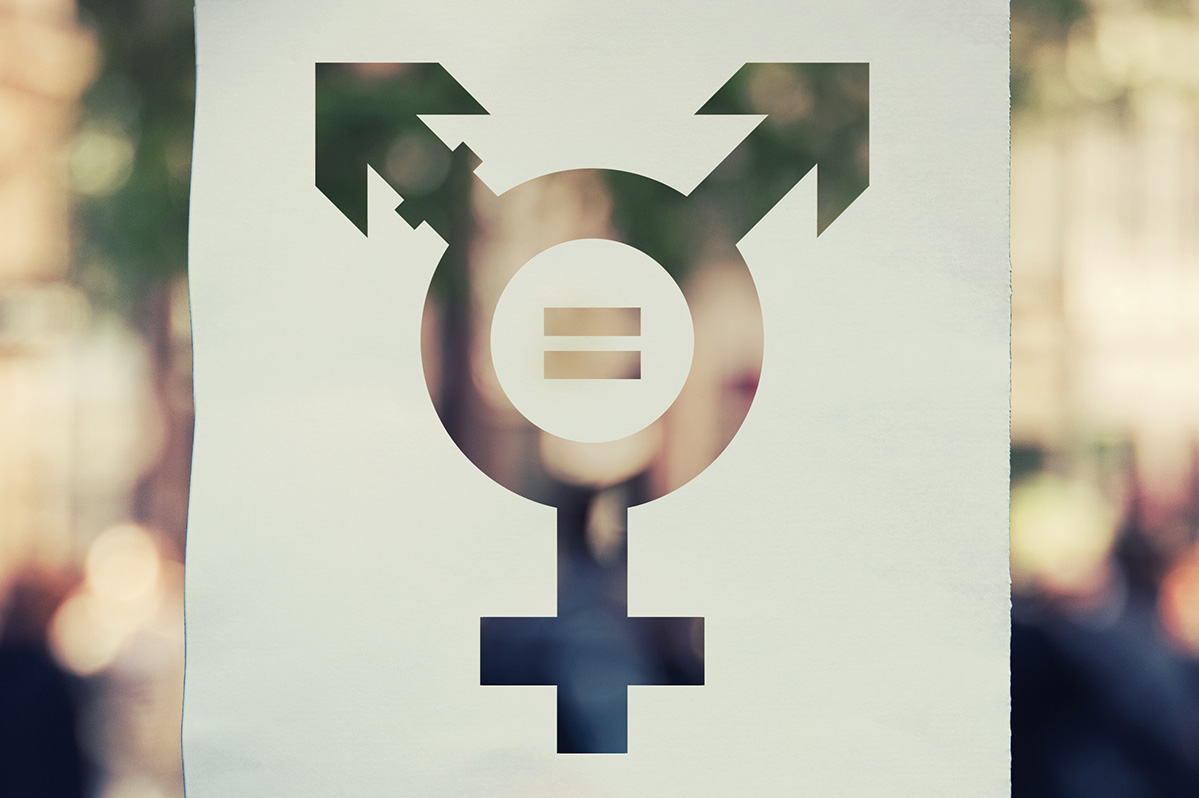
By Dacey Romberg, Madison Zucco, Luke Lamberti, and Xan Wolstenholme-Britt
Around the country, Women’s Bills of Rights (“Women’s BoRs”) have emerged as a mechanism to spread anti-transgender policy under the guise of women’s rights. These laws redefine terms like gender, sex, woman, and man to binary definitions that exclude protections and recognition of transgender, nonbinary, and in some contexts, intersex individuals. The focus of these laws is on public institutions and facilities, such as restrooms and changing rooms.
What do these laws mean for students and employees of public institutions, such as public schools and government agencies? How may private employers react to these laws? We will dive into the rise of Women’s BoR laws, their impact on workplace protections, and what we can expect with the rise of anti-transgender policies.
In early 2022, Independent Women’s Voice and the Women’s Liberation Front introduced the Women’s BoR as model legislation seeking to limit legal recognition of sex to one’s sex assigned at birth. While both groups identify as women’s advocacy organizations, Independent Women’s Voice and the Women’s Liberation Front have long sought to limit the rights of transgender Americans as a primary area of focus. The Women’s BoR entered mainstream politics when Republicans in the House of Representatives and Senate attempted to endorse the legislation in a resolution in 2022. While federal attempts to pass a national Women’s BoR have not been successful, states have begun to adopt similar bills. Throughout 2023 and 2024, state legislators in Kansas, Louisiana, Montana, Mississippi, Oklahoma, Tennessee, and Utah enacted statutes based on the federal bill.
Advocates frame Women’s BoR as supporting women, but they do not positively affect or protect cisgender or transgender women; in actuality, their only impact is to exclude transgender Americans from legal recognition and erase the experience of nonbinary and intersex individuals. In light of this worrisome impact, transgender, nonbinary, and intersex people may wonder what protections they have in workplaces if their state has passed a Women’s BoR.
Each state’s Women’s BoR is unique depending on what laws it sought to amend and how far-reaching its impact will be, but clear throughlines exist nationwide. Transgender, nonbinary, and intersex employees are affected by the redefinition of terms including sex, gender, men, and women, as legislators use outdated and transphobic lenses to categorize individuals and essentially erase any protection of those who do not identify as cisgender women or men. Furthermore, some of these bills place legal consequences on transgender, nonbinary, and intersex employees who use public facilities that align with their gender identity. For example, under the Louisiana Women’s Safety and Protection Act, an individual who alleges they have suffered “any direct or indirect harm as a result of a violation of” this law may file a lawsuit against the party in violation for relief that may include injunctive relief (a court order to do something or to stop doing something) and attorney fees, damages, and costs associated with the lawsuit. The state seems to be incentivizing these cases by waiving a procedural hurdle that is usually required to get an injunction.
What do these bills mean for transgender, nonbinary, or intersex employees that are employed in states that have enacted a Women’s BoR? If the individual is employed by a state government, public school, or another form of public institution, that institution may take the position that only cisgender employees are protected by the state’s anti-discrimination laws, which they may now interpret as only applying to cisgender women and men.
Oklahoma’s Women’s BoR states that “any policy, program, or statute that prohibits sex discrimination shall be construed to forbid unfair treatment of females or males in relation to similarly situated members of the opposite sex.” By stating that laws only forbid “unfair treatment of females or males,” the bill may result in transgender, nonbinary, and intersex employees no longer being covered by the Oklahoma Anti-Discrimination Act. Montana similarly appears to have passed legislation that limits “sex discrimination” to only males and females, which could be interpreted as removing transgender, nonbinary, or intersex individuals from the protections of the Montana Human Rights Act.
These employees may still be protected by federal anti-discrimination laws, though, including Title VII of the Civil Rights Act, which prohibits employment discrimination based on gender identity. For instance, if a transgender employee is barred by their employer from using the office locker room that aligns with their gender identity, they may be able to establish a Title VII violation. Similarly, a Title VII or Affordable Care Act violation may be established where a transgender employee is denied coverage for gender-affirming care but cisgender employees are covered for the same procedure or treatment.
Though not all have been labeled Women’s BoR, more than 40 “re-definition” bills were introduced in state legislatures this year, according to the ACLU, marking a significant increase in this type of legislation. This indicates a concerted effort by certain political groups to roll back protections and recognition for transgender and nonbinary individuals. This legislative push not only threatens to erode hard-won rights but also fosters a climate of discrimination and exclusion. As these bills have gained traction in the past few years, it becomes increasingly important for employers and allies to stay informed and engaged to protect and advance the rights of transgender and nonbinary individuals at both the state and national levels.
It is essential for public and private employers to understand the implications of these laws and how they might affect their workforce. When possible, employers should be proactive in counteracting harmful policies by incorporating specific protective language into their company policies and providing robust support systems for their transgender, nonbinary, and intersex employees. This could involve conducting informational sessions to ensure that employees know their rights and the potential impacts of these laws.
While public employers in states that have passed Women’s BoRs may be more limited in how they can support their transgender, nonbinary, and intersex employees, private employers can support their employees by implementing inclusive policies and practices such as anti-discrimination policies that explicitly protect gender identity and expression; providing comprehensive healthcare benefits that cover gender-affirming treatments and ensuring that facilities, such as restrooms, are accessible to all employees. Additionally, providing support networks, such as employee resource groups, and ensuring that all employees are aware of and have access to these resources can significantly enhance the sense of belonging and safety for transgender, nonbinary, and intersex employees. By doing so, employers can create a more inclusive and supportive work environment, helping to mitigate the negative effects of these legislative changes on their employees.
Dacey Romberg, Madison Zucco, Luke Lamberti, and Xan Wolstenholme-Britt are with Sanford Heisler Sharp.
Commentary
Ukraine’s new conscription laws threaten humanitarian efforts

Ukrainian men are being pulled away from vital humanitarian work and drafted into the military under new conscription laws, according to local activists.
One huge challenge facing Ukraine’s war effort is a shortage of conscripts. Kyiv hopes new laws passed in April 2024 aimed at recruiting many more soldiers will help it get on the front foot militarily, particularly after a fresh wave of attacks from Russia in May 2024 in the northeast.
Vasyl Malikov is the Kharkiv coordinator of Alliance.Global northeastern Ukraine. The NGO provides a wide range of services to the LGBTQ community in the Kharkiv region, including HIV prevention and testing, psychosocial help, medical, and humanitarian aid.
He told me that most of the men who work with the organization to provide these services as well as their volunteers are liable to be called up for military service under the new conscription drive.
Russian invasions of Ukraine in 2014 and 2022 have resulted in a protracted war being fought along a front line stretching over several hundred miles. In August 2024 Ukraine opened a new line of attack when it pushed into Russia’s Kursk region, with reports estimating Ukraine could commit as many as 10,000 troops to the attack. Despite the widespread use of new technology on the battlefield, much of the war is being fought by more traditional means, with large numbers of soldiers armed with rifles defending the country from trenches.
The new laws aim to reinforce Ukraine’s tiring military and lower the age of conscription from 27 to 25, although volunteers over 18 are still accepted.
Ukraine has for a decade been successfully pressing the United States government and leaders in Europe for weapons to defend itself against Russian aggression, but having enough soldiers to use them is a significant challenge.
An initial target of conscripting 450,000 to 500,000 new recruits has been lowered, but it is not clear what the new number is. I’ve been regularly reporting from the front line in and around Kharkiv, the country’s second biggest city, over the last two years, and it’s obvious that Ukraine’s military is running short of personnel.
Malikov says some of the men who work with Alliance.Global have already been called into the army, and are hard to replace. “Good international practice is that many of the services we provide to LGBTQ people are best done by social workers and volunteers who come from the communities they serve (peer-to-peer),” he said.
“We do an enormous amount of work providing vital social and other support to gay men and bisexual men in and around Kharkiv. Trust is important in the outreach to these communities, and if men from our team are taken for the army you can’t just get anyone to replace them. These are experienced professionals, committed to this work.”
A few of the Alliance.Global team are exempt from the military draft on medical grounds, or for some other reason. Malikov is himself currently exempt because he is also a university professor, but this academic certificate has to be renewed every three months – a long bureaucratic process, he says, which can involve him queueing for five hours at a time.
This new challenge comes as the country’s LGBTQ community confronts a halt to progress on legislation to introduce same-sex civil partnerships, despite more than 70 percent of Ukrainians polled saying that LGBTQ people should have the same rights as other citizens. This is a huge improvement from 2010 attitudes, when only 28 percent of Ukrainians thought that “gay men and lesbians should be free to live their lives as they wish.”
Yet, as Bogdan Globa, president and co-founder of QUA – LGBTQ Ukrainians in America, notes, “thousands of LGBTQI+ are serving in the army with a civilian partner back at home. For straight couples, if something happens with a military partner (wounded or killed), a civilian partner will obtain a variety of government benefits, from cash support to housing. In the case of same-sex couples, they are invisible to the government and have no help or recognition. A civilian person has no right to even bury their partner’s body.”
Malikov says, “any Ukrainian man could find himself in the military in a matter of weeks from now, because it’s a civic duty of Ukrainian men during wartime, including any number of the 80 or more men who are part of the Alliance.Global network.”
The new recruitment drive presents new tests for his work in Kharkiv. “It makes things very difficult to plan. We don’t know who will be called up, or when, and it’s another layer of unpredictability to an already uncertain future,” he says.
For more, see Human Rights First’s new report, “New Recruits: Ukraine’s Military Conscription Laws Threaten Humanitarian Efforts,” written by Maya Fernandez-Powell and myself.
Brian Dooley is senior adviser for Human Rights First.
Commentary
There is no historical comparison to this election
Our futures are at stake so urge your family, friends to vote Harris
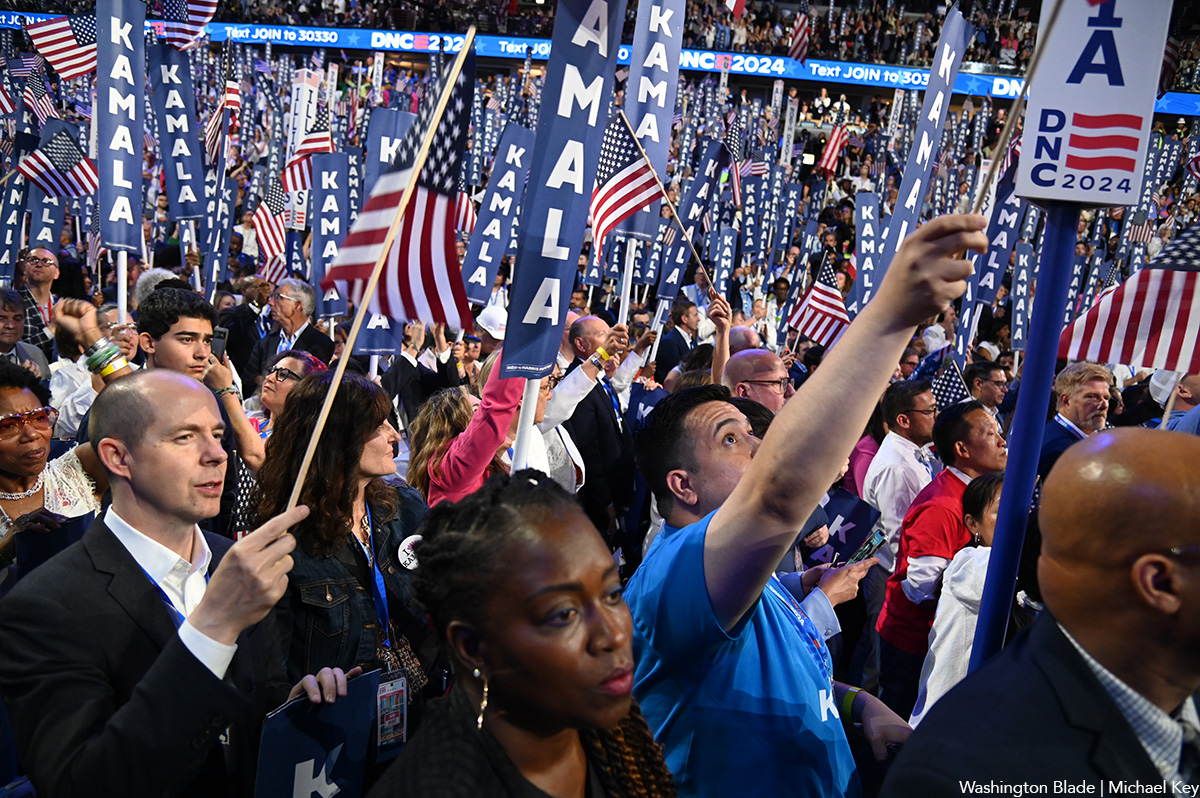
It is time those who keep trying to compare this election to previous elections to recognize there is no comparison. There has never been a sitting vice president running against a disgraced former president, who lost the last time he ran. There has never been an African American/Asian American woman, running for president as a major party nominee. There has never been a candidate who replaced the original candidate of a major party on the ticket, with only three months until the election.
There also has never in recent years been such a unified Democratic Party, running against not a political party, but a cult. There has never been a major party candidate running for president held liable for sexual assault and convicted of 34 felonies. There has never been a time when a woman’s right to control her own healthcare has been taken away after being considered a constitutional right for nearly 50 years. There has never been a time when a woman’s right to an abortion has been on so many state ballots. And there has never been a candidate who rants regularly on his social media platform, mostly inane nonsense, at the same time his running mate tells a sitting vice president to ‘go to hell,’ in response to something she never even said. We have never had a candidate for vice president who has in essence told women without children they are useless. The total lack of class of the MAGA Republican ticket is also something we have never seen before. So to all those like the MAGA Republican Marc Theissen, who writes in the Washington Post, saying he can compare this election to previous ones, they might want to take the time to read some history.
What’s clear is we don’t know who will win this election. We don’t know how many Americans there are who would choose to vote for a once defeated former president, convicted felon, who tried to stage a coup to remain in office. Yes, he could win even if that were to seem like an alternate reality. Unfortunately, with today’s divided electorate, we can surmise what the result in 43 states will be. It is only in seven states that there is some doubt about the result. I wish I had a crystal ball, but I don’t, and neither does anyone else. From what we have seen in recent years, polling is not an accurate predictor.
There are the types of issues in this campaign we have seen in previous elections, when wars and the economy have played a big role. Today we have divisions over the Israel/Hamas war, with debates on how the United States should deal with Israel, and the future of the Palestinian people. There is the war in Ukraine and questions some have about our continued support for Ukraine, and how we are working with our allies. Then there are what are usually called kitchen table issues: inflation, and the cost of food, gas, rent, and education. Then add the issue of crime. We know climate change is taking a much larger role in elections, especially for young people who will live longer with the results if we do nothing about it. These are the issues, even if not exactly the same, that have been around in previous elections. Yet this election is still so different.
It is what is new and scary I believe this election will be decided on. It will be decided by a very small number of voters, in a small number of states. It will be won by Harris if enough voters fully understand our democracy is actually at risk if Trump wins. They must understand the impact of the Supreme Court ruling granting a president nearly absolute immunity. Understand what happens if Trump’s acolytes, who will be in his government, remake our government based on the Heritage Foundation’s Project 2025. It will be decided by those who understand what additional rights will be taken away if Trump is able to appoint more judges with lifetime terms to the Supreme Court, and other federal courts.
With all this at stake we still don’t know how people will vote. But I have confidence in the American people, and believe Kamala Harris and Tim Walz will win. But I also know for that to happen, they will need everyone who supports them to be out and working hard, whether raising money, knocking on doors, or talking to family and friends to get them to vote. That last one can really have the greatest impact over the next two months.
Everyone who supports the Harris/Walz ticket needs to sit down and make a list of every one of their friends and family members. Then start calling. First you need to ask each person for a commitment to vote. Then you must help them understand why their vote is so important. Explain to them they are not only voting for themselves in this election, they are voting for you.
You need to share with them what this election could mean to your life. If you are a young person concerned with climate change, explain to them they are voting to make the world safer and healthier for you, who will be living in it the longest. If you are a woman who wants to ensure you have control of your own healthcare, and the right to an abortion, explain to them why this election is so crucial to you. If you are a member of the LGBTQ community and want to ensure your rights aren’t taken away, and instead of going backwards, you have a chance to get full equality, explain to them why their vote in this election will have a direct impact on your life. If you are African American and want to ensure you have your civil rights, economic equality, the right to vote, and that the nation doesn’t go back to giving police ultimate power, and the right to ‘stop and frisk’ as Trump has stated he supports, then explain to them why this could literally be a vote for your life. If you are Latino and a Dreamer, and want the right to live safely in this country without looking over your shoulder every day, worrying about the possibility of a member of your family being deported, explain to them why this is a vote for your safety and your future. If you are Asian American and want to ensure you can live without discrimination, explain why this is a vote for you.
This election must be made to feel personal for each voter. People need to understand what electing Trump will mean to each one of us, and how it will directly impact every person’s life. You can do that by calling all your friends and family, and then asking them to call their friends, like a giant telephone tree. It will make the difference to winning or losing.
Again, in the end, this election is about all of us. It is about our individual rights as guaranteed in our Constitution. It is about what our country will look like going into the future. It is about how we interact with the rest of the world knowing we have a global economy, and the result and impact of doing nothing about climate change doesn’t stop at our border. It is about the opportunity to continue to move forward toward that ‘more perfect union,’ promised in our Constitution. So, when you speak with your friends and family do so honestly, and do it with passion. Because for all of us to live a good, safe, and healthy life, in a peaceful, safer, and healthier world, Kamala Harris and Tim Walz must win.
Peter Rosenstein is a longtime LGBTQ rights and Democratic Party activist. He writes regularly for the Blade.
Commentary
Who’s afraid of Robby Starbuck?
Right-wing blogger striking fear into hearts of corporate America
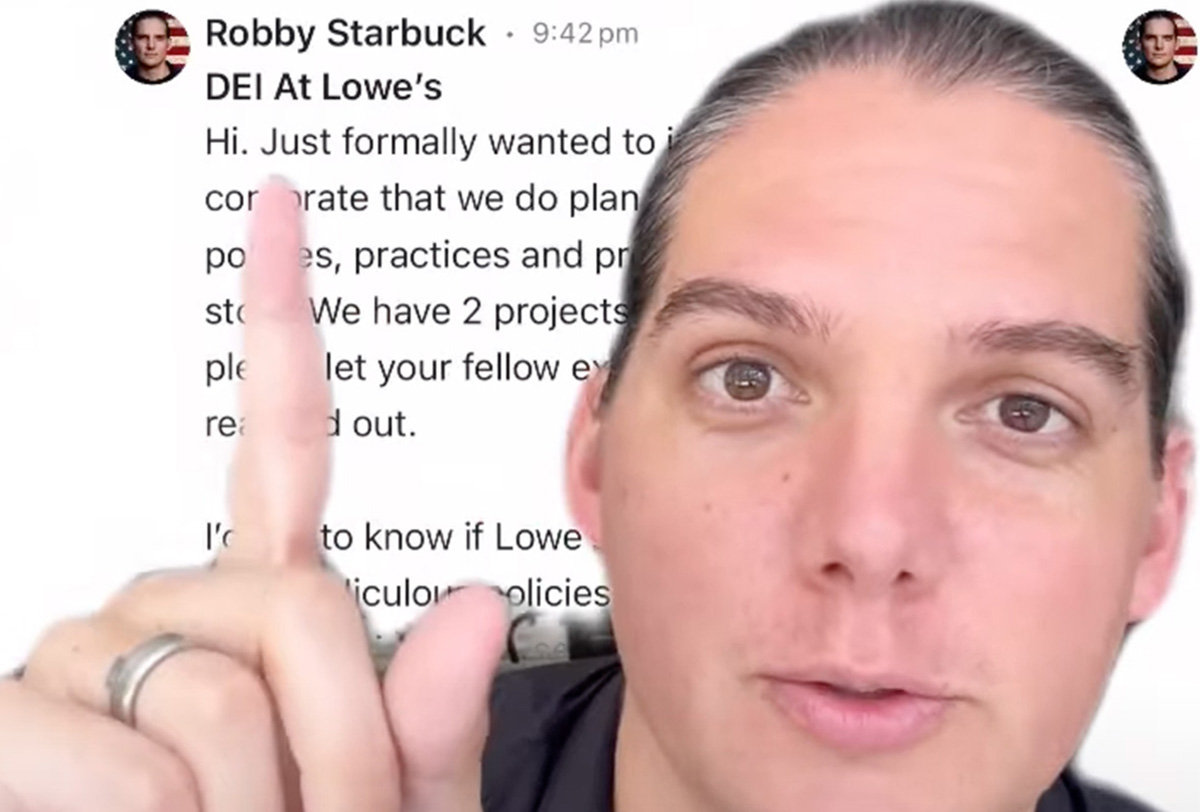
The backlash against DEI and other inclusive programs at America’s largest companies continues, with news last week that Ford Motor Company will scale back its internal DEI initiatives.
The announcement follows a move by retailer Target to reduce its Pride merchandise in June and, of course, the uproar last year over Bud Light’s trans-inclusive marketing efforts.
The Ford news was first reported last week when a memo from CEO Jim Farley was leaked to Reuters by right-wing activist Robby Starbuck, “who has campaigned against DEI programs as well as corporate participation in LGBTQ events and the issuance of public statements concerning — or the deployment of business strategies to address — matters from climate change to systemic racism,” as the Blade reported.
Starbuck, a music video director-turned-anti-woke crusader claimed credit for Ford’s decision, writing that the company “fears” him. “We’re now forcing multi-billion dollar organizations to change their policies,” he said in a post on X.
No one had ever heard of this guy or his homophobic and racist campaign until recently, which begs the question: Why are some of America’s largest companies reflexively caving to these destructive demands?
In addition to Ford, Starbuck has claimed credit for sparking similar changes at Tractor Supply, John Deere, Harley Davidson, Polaris, and most recently Lowe’s, after threatening to expose “woke policies” at the companies.
Lowe’s last week revealed in a memo that it would stop participating in the Human Rights Campaign’s Corporate Equality Index and would no longer sponsor parades and festivals like Pride celebrations.
Of course, some of these changes are normal business decisions driven by the bottom line. Does expending internal resources to comply with HRC’s criteria for a good score do anything to boost business? Are these companies hedging now in anticipation of retaliation by a Trump administration if he wins in November?
But the timing of these recently announced changes raises eyebrows given all the pronouncements by Starbuck and they are disconcerting because our corporate allies have sometimes made the difference between anti-LGBTQ laws taking effect or not.
It’s maddening that one pony-tailed blogger could scare huge corporations into abandoning affirming programs for its employees and customers. Starbuck has called DEI programs “evil” and CNN reported that his wife Landon is a leading opponent in Tennessee of affirming medical care for trans teens and drag queen story hour events.
Predictably, Starbuck is a Trump supporter whose scientifically challenged opinions have been amplified by Elon Musk. He is a climate change denier and anti-vaxxer who told CNN that LGBTQ Pride events promote sex to children, the oldest and most disgusting slur used against our community.
The corporate CEOs and boards caving to this homophobe should grow a spine.
Thankfully, the news from corporate America isn’t all bad. In April, JPMorgan Chase CEO Jamie Dimon in a shareholder letter touted a range of programs — “from resource groups for employees who are Black, LGBTQ+, or have disabilities to a fund aimed at helping entrepreneurs of color, investments in rural communities, and recruiting efforts at historically Black colleges and universities,” according to a report in Axios. “He also said that the $30 billion racial equity commitment the bank made in 2020 was ‘nearly completed’ and would become a permanent part of the business.”
“We’re thoughtfully continuing our diversity, equity and inclusion efforts,” he wrote.
And earlier this week, Aetna announced that it would become the first major health insurer to offer intrauterine insemination (IUI) as a medical benefit to all members nationwide, regardless of a patient’s sexual orientation or partner status. Aetna is the nation’s third largest health insurer, so the policy change “has wide-reaching implications for LGBTQ Americans,” the company touted in a release.
For those corporate leaders searching for a response to Starbuck and his ilk, I suggest they listen to former Macy’s CEO Jeff Gennette whom I interviewed for the Blade in January upon his retirement. Gennette, who’s gay, pioneered Macy’s own extensive DEI programs and disagreed with how Target and others caved to right-wing demands.
“It’s when you flip and succumb to pressure that you get yourself sideways,” he said, noting that, “It always comes back to your core values. We had Pride merchandise at the front of our stores and we were participants in Pride parades around the country. George Floyd put us on notice about being vocal about our internal programs and how you use your CEO voice to be true to what you’re doing internally.”
There remain plenty of CEOs out there who are doing the right thing. Ford, Lowe’s, and the others placating MAGA blowhards are alienating potential customers and undermining their LGBTQ employees and should reverse these misguided and cowardly decisions.
Kevin Naff is editor of the Washington Blade. Reach him at [email protected].
Commentary
Log off, touch grass, and self care
Social media companies are in business to keep us logged on

Among the “Terminally Online,” someone who is so involved with internet culture that they have something of an obsession with it, is a phrase known as “touching grass.” To touch grass means to log off, engage with the real world, and prioritize one’s offline relationships. While this conjures up all kinds of images of young adults playing video games in a room full of dirty laundry, piled up pizza boxes, and crusty socks hanging everywhere—the truth of the matter is that all of us could do well to “touch grass.”
Since COVID-19 use of the internet and social media has skyrocketed. In fact, what COVID did was merely accelerate our ongoing migration into the digital world. The LGBTQ community has always been at the forefront of this migration due to the marginalized status we occupy in society. Despite what some may argue, only recently have public displays of affection become acceptable, and even today some of those exchanges are met with hostility and discrimination.
With the rise of social media has come increased use of social media apps, and one of the number one social networking sites—outside of big three (Facebook, X formerly known as Twitter, and Instagram)—are dating apps. Grindr specifically has ranked as one of the most downloaded apps in iTunes (#25 at time of writing) and in the Google play store. It is particularly interesting to consider how much of our lives we have entrusted to apps of all varieties—ranging from our favorite moments with our families, to our most intimate details. Sharing these kinds of moments might have seemed unfathomable to us in earlier decades, but today this has become second nature to most.
What many fail to realize, or chose not to acknowledge, is that social media companies are well aware of the destructive tendencies that their products tap into. Nearly every aspect of these platforms has been intentionally designed to increase user engagement, and tap into our unconscious fears and desires. We fear missing an important event, we desire romance and intimacy, and worry about missing an important email that could change the trajectory of our careers.
For decades, companies from Grindr to Facebook have employed social science researchers to harness the addictive qualities of apps. Think about it, that all too familiar “Brrrrup” notification from Grindr. It’s almost Pavlovian in the way it causes us to immediately reach for our phones wondering who has contacted us, or what pic we’ve just been sent. This sound has intentionally been designed to be distinct from other apps, and thus to attach itself to a specific part of our brain. Researchers have shown we get a dopamine hit from getting a like, retweet, share, or other response—imagine what happens to our brains when we think a romantic encounter looms around the corner.
This strategy is highly effective. Grindr has one of the largest daily returning user bases of any social media company, and its users rank among the highest for time spent on the app. That downward motion to refresh the grid of profiles in proximity to you, that’s also been engineered to increase engagement. It’s like the pull of a Las Vegas slot machine with each swipe down offering the possibility that the next grid will be the one with your soul mate. While I’ve met several gay friends who met their partners on apps, and I’ve used the app to connect with a member of parliament who gave me a private tour while in London, I’ve also met many other men with an unhealthy, if not anti-social, relationship to the app.
My own reliance on these apps was reflected back to me recently, after becoming the victim of an internet scam artist. He had used several fake social media profiles to find out my interests, learn about me, and find out how I could be best manipulated. Gay romance scams are an understudied topic, one in which only a few researchers like Carlo Charles has studied. In speaking with him I have come to understand my story is not unique, and follows an all-too-familiar pattern. I was left wondering after engaging with his work how this happened, and why it happened to me.
While in Montreal this past summer for a conference I was given an answer, and had a mirror put up in front of my face. A very attractive young man messaged me, and he was also a fellow academic. He thought he recognized me from elsewhere, but looks can be deceiving—especially amid a grid of pixelated images. I had already decided after nearly becoming the victim of a scam I wasn’t interested in hooking up, dating, or anything other than being friends—plus I was there to work and had early morning appointments. Despite my encouragement to get out there and that he’d have no problems finding someone to make out with he decided to stay on the apps, “Everyone will just pass me by, so I’ll stay here on the apps, and maybe I’ll go to the gay sauna later.”
While I’m no prude, or a stranger to the apps or the saunas, it made me realize the addictive hold apps have had on our community. Apps like Grindr have created the illusion of an endless supply of men, and that the perfect lover lies just around the corner with the next swipe. These apps also leverage social-psychological aspects of human behavior against us to increase engagement. Like Facebook, apps like Grindr have made us dopamine addicts seeking instant gratification. When you pair that with other substances these encounters can quickly become dark experiences.
The next day was the Pride parade, and it must have lasted more than an hour. I saw him on the app and encouraged him to come down. He refused thinking he would be rejected. I told him he ought to, and that I’m sorry I couldn’t meet up with him as I had to get to the airport.
My career has been spent living in rural areas—areas known to be hostile toward LGBTQ people, but also areas in which even the community can be difficult to become involved in—and apps became a way to find some semblance of community. However, like many aspects of online life, these spaces are poor alternatives to real human interaction. Despite advertising otherwise, social media companies are businesses, and their business is keeping us logged on and engaged. Perhaps the solution is for us all to touch grass, and find the beauty that exists in all things—even if it’s not the ideal.
Christopher T. Conner is Assistant Professor of Sociology at the University of Missouri. His latest book, ‘Conspiracy Theories and Extremist Movements in New Times’ is available from Bloomsbury Press/Lexington.
Commentary
Elect Kamala Harris — for all the people
Eloquent DNC speech highlights stark contrast to Trump

On day four of the Democratic National Convention, Kamala Harris told the nation why they should elect her president. In a strong and eloquent speech, she shared her background, and her vision for the future. She talked about her family, her immigrant parents, how she grew up, her career as a prosecutor, attorney general, senator, and now vice president. She told us how she will govern, and her goals for the nation. She talked of her plans to move forward on issues including: affordable healthcare for all, affordable housing for all, affordable food, and quality, affordable education. She spoke of national security, and ensuring a strong military, of her support for our allies, and working for a safer, healthier, world.
In a perfect world every voter would read both Trump and Harris’s convention speeches before they vote. If they did, I believe Harris would win in a landslide. But this will be a close election. There are still third-party candidates like Cornell West and Jill Stein, who have no chance of winning, but their being on the ballot will only help Trump. Then there is the crazy RFK, Jr. who has now endorsed Trump. We pretty much know who will win 43 states. Only in seven: North Carolina, Georgia, Nevada, Arizona, Michigan, Wisconsin, and Pennsylvania, is there a question. Whoever wins those, or at least enough of them to reach 270 electoral votes, will be our next president.
One feels a sense of joy when listening to Harris. She speaks clearly and positively, when sharing her approach to the world. She proudly said about her career, “every day, in the courtroom, I stood proudly before a judge and I said five words: Kamala Harris, for the people. And to be clear, my entire career, I’ve only had one client: the people.” She reminded us of what we all know, Trump also only ever had one client, but in his case, it was himself.
She told us how she will govern, and what we can judge her success on saying, “we are charting a new way forward to a future with a strong and growing middle class because we know a strong middle class has always been critical to America’s success, and building that middle class will be a defining goal of my presidency.” She went on to say to women, and the LGBTQ community, “America cannot truly be prosperous unless Americans are fully able to make their own decisions about their own lives, especially on matters of heart, and home.” She reminded all “too many women are not able to make those decisions. Donald Trump handpicked members of the U.S. Supreme Court to take away reproductive freedom. And now, he brags “I did it, and I’m proud to have done it.”
She reminded us “As vice president, I have confronted threats to our security, negotiated with foreign leaders, strengthened our alliances, and engaged with our brave troops overseas. As commander in chief, I will ensure America always has the strongest, most lethal fighting force in the world.” She went on to say “I will make sure that we lead the world into the future on space and artificial intelligence. That America, not China, wins the competition for the 21st century and that we strengthen, not abdicate, our global leadership. I will stand strong with Ukraine and our NATO allies.”
She spoke of the Israel/Hamas war and her commitment to Israel saying, “I will always ensure Israel has the ability to defend itself, because the people of Israel must never again face the horror that a terrorist organization called Hamas, caused on Oct. 7, including unspeakable sexual violence and the massacre of young people at a music festival.” But she also gave her commitment to the Palestinian people saying she will work to ensure that, “the Palestinian people can realize their right to dignity, security, freedom, and self-determination.”
She closed saying, “We are the heirs to the greatest democracy in the history of the world. And on behalf of our children, and our grandchildren, and all those who sacrificed so dearly for our freedom and liberty, we must be worthy of this moment. It is now our turn to do what generations before us have done, guided by optimism and faith, to fight for this country we love, to fight for the ideals we cherish, and to uphold the awesome responsibility that comes with the greatest privilege on Earth: the privilege and pride of being an American.”
I ask everyone to join Kamala Harris in fighting for the ideals she is fighting for. By defeating Trump, and electing Kamala Harris the nation’s 47th president, we will make both the United States, and the world, better and safer places for us all.
Peter Rosenstein is a longtime LGBTQ rights and Democratic Party activist. He writes regularly for the Blade.
-

 Breaking News5 days ago
Breaking News5 days agoMajor victory for LGBTQ funding in LA County
-

 Features4 days ago
Features4 days agoKoaty & Sumner: Finding love in the adult industry
-

 Commentary2 days ago
Commentary2 days agoBreaking the mental health mold with Ketamine: insights from creator of Better U
-

 Miscellaneous4 days ago
Miscellaneous4 days agoCan you really find true love in LA? Insights from a queer matchmaker
-

 Arts & Entertainment4 days ago
Arts & Entertainment4 days agoIntuitive Shana gives us her hot take for July’s tarot reading
-

 El Salvador5 days ago
El Salvador5 days agoLa marcha LGBTQ+ desafía el silencio en El Salvador
-

 Movies14 hours ago
Movies14 hours agoTwo new documentaries highlight trans history
